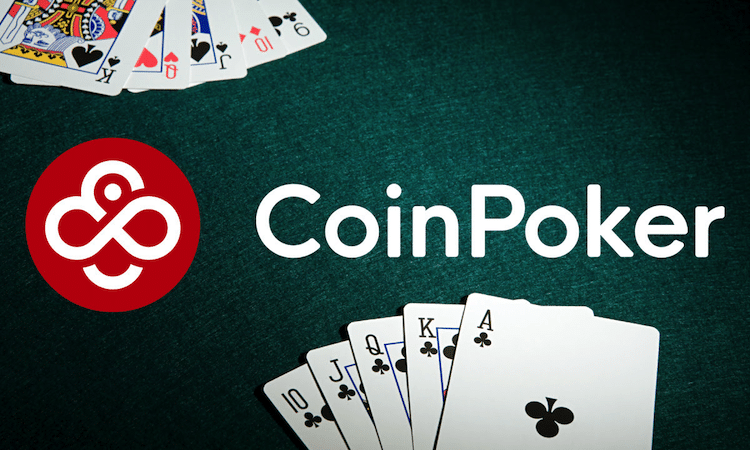The efforts to revise Michigan’s gambling tax policies in 2024 hit a roadblock as Senate Bills 1193 and 1194 failed to advance. With the failure of these measures, the current tax framework for gambling in the state remains intact. These bills, if passed, would have implemented slight tax increases and adjusted the allocation of tax revenues.
Slight Tax Increases Proposed in SB 1193
Senators Sam Singh and Jeremy Moss spearheaded the introduction of Senate Bill 1193, aiming to make minor adjustments to both the taxation of gambling and the distribution of the resulting funds. The proposed changes were unlikely to heavily burden gambling operators.
One of the key points in SB 1193 was a proposed increase in the sports betting tax rate, raising it by 0.1% to a total of 8.5%. This minimal increase was designed to generate additional state revenue without significantly impacting the profitability of gambling businesses.
The proposed bill also targeted the online casino gaming tax, which in Michigan varies based on operator revenue. The current tax structure is as follows:
- Revenue below $4 million: 20%
- Revenue between $4 million and $8 million: 22%
- Revenue between $8 million and $10 million: 24%
- Revenue between $10 million and $12 million: 26%
- Revenue over $12 million: 28%
SB 1193 sought to raise each of these tax tiers by an additional 1%, providing the state with increased funds for public use.
Changes to Tax Allocation Proposed in SB 1194
In parallel, Senate Bill 1194 aimed to revise how the tax proceeds are distributed. Currently, 65% of the tax revenues are allocated to the Internet Gaming Fund, 30% support Detroit services, and 5% go to the Agriculture Equine Industry Development Fund.
The proposal in SB 1194 suggested adjusting these percentages to:
- Internet Gaming Fund: 63.5%
- Detroit services: 31%
- Agriculture Equine Industry Development Fund: 5.5%
This reallocation would have slightly increased funding for Detroit services and agricultural development at the expense of the Internet Gaming Fund.
No Plans to Extend the Bills into 2025
Despite being modest compared to tax increases in other states, these proposed changes did not garner sufficient support. Consequently, Senate Bills 1193 and 1194 will not be carried over into 2025.
However, the backers of these bills have the option to reintroduce similar proposals in the future if they choose to continue their efforts.
Michigan’s Gambling-Friendly Status Remains
For now, Michigan retains its reputation as a state with operator-friendly gambling regulations. The state’s comparatively low tax rates and the allowance for sportsbooks to deduct promotional spending from taxable revenue make it an attractive market for gambling companies.
In terms of gaming legislation, Michigan has established a comprehensive legal framework to regulate various forms of gambling, including casino gaming, sports betting, horse racing, and charitable gaming. The Michigan Gaming Control Board (MGCB) oversees these activities, ensuring compliance with state laws and regulations. In December 2019, Governor Gretchen Whitmer signed legislation legalizing online casino gaming and sports betting, with the first online platforms launching in January 2021. This expansion has positioned Michigan as a significant player in the U.S. gambling industry, offering residents and visitors a variety of legal gambling options.
The economic impact of Michigan’s gambling industry is substantial. In 2022, online casinos contributed $289.2 million in state taxes and $77.8 million in city taxes, alongside $32.8 million from online poker. Sports betting has also seen significant activity; in February 2024, Michigan sportsbooks handled $415.8 million in bets, with online sports betting accounting for 96.8% of the total handle. This reflects a 16.4% increase from February 2023, indicating a growing market. The revenue generated from these activities supports various state programs and services, highlighting the industry’s role in Michigan’s economy.
Nationally, the U.S. gambling industry has experienced significant growth. In 2023, the online gambling market in the United States was valued at approximately $19.54 billion, representing a 39% increase from the previous year. Projections suggest this market could reach $39.82 billion by 2029, indicating a compound annual growth rate (CAGR) of 9.77% from 2024 to 2029. This expansion is driven by the increasing legalization of online gambling across various states, technological advancements, and a growing acceptance of gambling as a form of entertainment. Michigan’s regulatory framework and market participation contribute to this national growth, reflecting broader industry trends.
Individual Gambling Taxation
In Michigan, gambling winnings are subject to both federal and state income taxes. At the federal level, a flat rate of 24% is withheld on gambling winnings exceeding $5,000. Additionally, Michigan imposes a state income tax of 4.25% on these winnings, aligning with its flat income tax rate. This means that a substantial portion of large gambling winnings is withheld upfront to cover tax obligations. For example, a $10,000 casino win would result in $2,400 withheld for federal taxes and $425 for state taxes, leaving the winner with $7,175 before considering any potential deductions or additional tax liabilities.
When comparing Michigan’s tax structure to other states, notable differences emerge. For instance, Illinois applies a flat state income tax rate of 4.95% to gambling winnings, slightly higher than Michigan’s 4.25%. In contrast, Indiana’s rate is lower at 3.23%, and Pennsylvania imposes a 3.07% tax on gambling income. These variations can influence gamblers’ net earnings across state lines. Furthermore, some states have no state income tax, such as Florida and Texas, meaning residents only owe federal taxes on their gambling winnings. These disparities highlight the importance for gamblers to understand both federal and state tax obligations in their respective jurisdictions to accurately assess their potential tax liabilities.
Lottery Scams: A Timely Warning
In related news, the Michigan Lottery issued a public warning about potential scams, emphasizing the importance of staying vigilant, particularly during the holiday season when fraudulent activities tend to rise.
The lottery reminded residents that legitimate prize claims require a purchased ticket and that there are no fees involved in claiming winnings. The only requirement for claiming a prize is presenting a valid winning ticket.
CoinPoker: Redefining Online Poker with Blockchain Technology
CoinPoker is reshaping the online poker world by harnessing blockchain technology to create a secure, transparent, and decentralized platform for poker lovers. By integrating cryptocurrency solutions, CoinPoker tackles traditional online gambling issues like slow transactions, regional restrictions, and concerns about centralized platforms. Its blockchain-based infrastructure guarantees fairness and enables instant payouts, making it an appealing choice for both casual players and seasoned pros.
Blockchain-Powered Fair Gameplay
One of CoinPoker’s standout features is its commitment to fair gameplay through blockchain technology. Unlike traditional poker platforms where players must trust the platform’s fairness, CoinPoker uses blockchain-secured verification for every hand. Its random number generator (RNG) operates transparently on the blockchain, allowing players to verify the fairness of game outcomes themselves. This added layer of transparency enhances trust and positions CoinPoker as a leader in the online poker industry.
Seamless Cryptocurrency Integration with CHP Tokens
CoinPoker’s ecosystem revolves around its native cryptocurrency, CHP (Chips), which facilitates transactions across the platform. Players can use CHP to join games, enter tournaments, and cash out winnings. In addition to CHP, CoinPoker supports popular cryptocurrencies like Bitcoin and Ethereum, offering users flexibility in managing their funds. By eliminating intermediaries, CoinPoker enables instant deposits and withdrawals while significantly reducing transaction fees, making it accessible to players worldwide.
Exciting Promotions and Reward Programs
CoinPoker stands out for its engaging promotions and rewarding loyalty programs. Players can enjoy freeroll tournaments, welcome bonuses, and attractive rakeback offers. The platform’s token-based economy also rewards users who hold CHP tokens with exclusive benefits. Frequent promotions, leaderboard contests, and special events keep gameplay fresh and engaging, encouraging users to remain active and competitive.
Community-Centric Growth and Player Engagement
A key strength of CoinPoker is its focus on community-driven development. By actively integrating player feedback into updates and new features, CoinPoker ensures its platform evolves according to user preferences. The platform maintains an active presence on social media and community forums, fostering a strong connection with its player base. This collaborative approach reinforces its reputation as a forward-thinking online poker platform.
Future Expansion and Innovation
With blockchain technology continuing to revolutionize online gaming, CoinPoker aims to lead this shift. Its innovative use of cryptocurrency, dedication to transparency, and commitment to user satisfaction distinguish it from competitors. Future plans include expanding its game library, building strategic partnerships, and further improving the player experience. These initiatives are designed to cement CoinPoker’s status as a premier online poker destination for players worldwide.
For more information on its features and to experience the platform firsthand, visit CoinPoker’s official website and discover how blockchain is transforming the online poker experience.
Related News
Lucky Block Casino - Decentralized Gambling Platform

- Bet With Crypto - BTC, ETH, USDT, LBLOCK and More
- Live Dealers - luckyblock.com
- Rated Best New Crypto Casino - No KYC
- Thousands of Slots, Blackjack, Roulette Games




